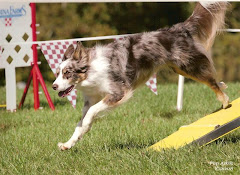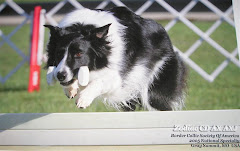Anticoagulant Rodenticides (aka Warfarin, etc.)
Almost everyone realizes that ingestion of mouse or rat poison is also toxic to dogs (and less commonly cats, because cats are more resistant and less likely to ingest unusual compounds unlike dogs!). So, what makes it toxic? Warfarin, Bromadiolone, brodifacoum, diphacinone, difenthiolone, chlorphacinone are the most common anticoagulant rodenticides used. Warfarin is the oldest and is now rarely used due to resistance-so don't assume that what you purchased was warfarin when you tell your vet your pet ate rat poison. All of these substances interfere with Vitamin K, and several clotting factors are dependent on Vitamin K for proper function. So, take away the Vit K and the whole clotting cascade is disrupted causing bleeding. Once this happens the pet can essentially bleed from anywhere into any space such as the abdomen or lungs. Sometimes they can even bleed into the central nervous system (brain and spinal cord) causing seizures or other severe pathology. Clinical signs can be lethargy, pale gums, difficulty breathing, weakness and many more.
So what do you do? First of all, don't panic. If you come home and find your pet has eaten the rat bait it's not the end of the world. It takes 36-72 hours for the body to use of the Vitamin K it has stored so your pet will not start bleeding and suffering effects the toxin right away. Of course if you think the ingestion has been in the last 4 hours go the vet so they can induce vomiting and try to get what you can out of the system. Whether or not you get there in time to induce vomiting your pet will be placed on oral Vitamin K capsules for 2-4 weeks. Here's the important part-bring the package or write down the active ingredient. Some of the longer acting products need to be treated for 3-4 weeks whereas Warfarin only needs to be treated for 7-14 days. Your vet may also check clotting times during and after treatment to make sure you have treated long enough.
If your pet ingested the toxin and you didn't find out until clinical signs are showing your vet will likely run some blood tests including clotting times. Your pet may need to be hospitalized and given a transfusion depending on their condition and blood tests. The good news is that as long they get past the crisis or are adequately treated before becoming critical there are no long term effects from this toxin.
Also important to note is that not all rodenticides are anticoagulants. Other ingredients such as cholecalciferol, bromethalin, and zinc phosphide are also being used. These are much more dangerous than the anticoagulants and treatment options are much more limited. If your pet eats these it is an emergency! Do not use these products if you have pets-the risk is not worth it. And naturally use caution and keep any and all rodenticides out of reach of pets! Don't forget you have used them and then let the dog in the garage or in the shed, etc. If you do use them check them frequently to make sure large amounts are not suddenly missing and always keep the package so you know what you used.
Another note-it is a very rare phenomenon (some say it's not even possible) for an animal to become poisoned by eating mice or rats that have killed by anticoagulants so don't panic if your cat is eating a potentially poisoned mouse.


.jpg)
.jpg)



.jpg)



2 comments:
I thought any and all rat poison would kill a dog so this post was very informative to me. Have no fear,though, I wouldn't use any of the rat poisons (and we had rats in our yard this summer and I was not happy about that!).
It is good to know that eating an infected rodent will not kill a cat, I have always wondered about that!
Post a Comment